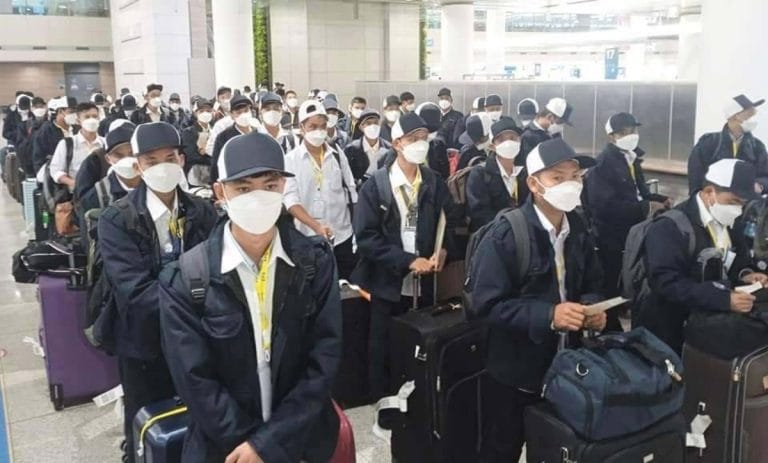🎧 Listen to This Article
Myanmar citizens living and working in South Korea will face new requirements for paying income tax starting May 12, 2025, according to an official statement from the Myanmar Embassy in Seoul. From that date forward, individuals must deposit their income taxes directly into the embassy’s designated Korean Won bank account.
This update reflects a broader policy tied to the Union Tax Law of 2023 amendment, which mandates income tax on foreign-earned income by Myanmar citizens abroad. The embassy previously collected tax during in-person visits for passport services, which has changed the process significantly.
Who Is Affected?
The tax applies to Myanmar nationals holding Passport Types PJ, PB, and PS who live and work in South Korea. These are the most common passport categories for migrant workers and overseas laborers.
The requirement is part of a larger effort by the Myanmar government to capture tax revenue from overseas workers, a practice increasingly mirrored by other countries with large diasporas.
How Much Tax Must Be Paid?
Tax is standardized at 32,000 Korean Won per month and depends on the individual’s arrival date in South Korea, as follows:
| Arrival Date in Korea | Monthly Rate | Duration | Proof of Arrival Required? |
|---|---|---|---|
| On or before Dec 11, 2023 | ₩32,000 | 18 months | No proof needed |
| On or before Jul 1, 2024 | ₩32,000 | 12 months | Yes (e.g., visa sticker) |
| On or before Jan 1, 2025 | ₩32,000 | 6 months | Yes (e.g., visa sticker) |
Workers must calculate their total tax payment based on these criteria and make payment in advance before visiting the embassy.
Where and How to Pay
The designated bank is KEB Hana Bank, and payments must be made in Korean Won. The key instructions:
- No mobile banking or app transfers allowed.
- Payment may be made in person or via a representative.
- The transfer must use the taxpayer’s name, not the representative’s.
- After payment, individuals must bring the original deposit slip to the embassy to collect an official tax receipt.
Failure to follow these steps may result in rejected payments or the need to pay additional taxes due to incorrect calculations.
Why the Change?
The move to direct bank transfers reflects an effort to standardize, digitize, and centralize tax collections abroad. It also reduces manual handling of cash at the embassy a long-standing logistical and security concern.
While some diaspora communities may see this as an added burden, the Myanmar government views it as an essential means of maintaining fiscal oversight and encouraging civic contribution by overseas citizens.
Potential Issues to Watch
- Lack of awareness among workers without internet access or embassy communication.
- Misuse of third-party agents or incorrect documentation.
- Bank errors that could delay embassy receipts.
- Limited embassy capacity to handle increased foot traffic for receipt collection.
Myanmar workers in South Korea are advised to double-check their arrival documentation and prepare for potential embassy queues as May 12 approaches.
What’s Next?
- Embassy officials are expected to roll out clarification hotlines and update passport renewal procedures to align with this tax system.
- Other Myanmar embassies in countries with large labor populations (Thailand, Malaysia, UAE) may soon follow with similar systems.
The reform may represent a significant shift in how Myanmar collects taxes from its global diaspora — potentially a model for other developing nations looking to stabilize revenues through remittances and overseas income streams.
For further details, clarification, contributions, or any concerns regarding this article, please get in touch with us at editorial@tax.news. We value your feedback and are committed to providing accurate and timely information. Please note that our privacy policy will handle all inquiries.



